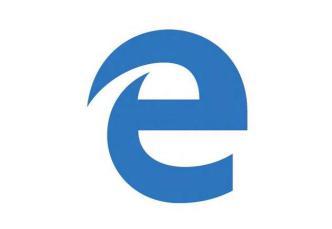In July, we discussed the positive — but mostly negative — effects of a Chrome monoculture. Did web users take notice and try another application? The latest StatCounter browser statistics prove otherwise …
Worldwide Desktop & Tablet Browser Statistics, June to July 2016
The following table shows browser usage movements during the past month.
| Browser | June | July | change | relative |
|---|---|---|---|---|
| Chrome | 57.99% | 58.40% | +0.41% | +0.70% |
| Firefox | 14.14% | 13.96% | -0.18% | -1.30% |
| IE11 | 8.18% | 7.38% | -0.80% | -9.80% |
| oldIE | 2.59% | 2.38% | -0.21% | -8.10% |
| Edge | 2.55% | 2.79% | +0.24% | +9.40% |
| Safari | 4.28% | 4.15% | -0.13% | -3.00% |
| iPad Safari | 5.33% | 5.60% | +0.27% | +5.10% |
| Opera | 1.68% | 1.75% | +0.07% | +4.20% |
| Others | 3.26% | 3.59% | +0.33% | +10.10% |
Worldwide Desktop & Tablet Browser Statistics, July 2015 to July 2016
The following table shows browser usage movements during the past twelve months:
| Browser | July 2015 | July 2016 | change | relative |
|---|---|---|---|---|
| Chrome | 51.89% | 58.40% | +6.51% | +12.50% |
| Firefox | 15.68% | 13.96% | -1.72% | -11.00% |
| IE11 | 10.84% | 7.38% | -3.46% | -31.90% |
| oldIE | 6.34% | 2.38% | -3.96% | -62.50% |
| Safari | 9.74% | 9.75% | +0.01% | +0.10% |
| Opera | 1.81% | 1.75% | -0.06% | -3.30% |
| Others | 3.70% | 6.38% | +2.68% | +72.40% |
(The tables show market share estimates for desktop browsers. The ‘change’ column is the absolute increase or decrease in market share. The ‘relative’ column indicates the proportional change, i.e. Edge’s user base grew 9.4% last month. There are several caveats so I recommend you read How Browser Market Share is Calculated and StatCounter vs NetMarketShare.)
For the past year, it’s been much the same story: Chrome grows at the same rate Internet Explorer falls. The proportion of Firefox, Safari and Opera users has remained fairly static. No other browser has managed to make an impact on the market.
It’s evident that users like Chrome — but are there alternatives you should consider? Firefox and Safari are the obvious options, but don’t discount other competitors.
Opera
 Few users were pleased when Opera dropped Presto, adopted Chromium’s Blink engine and released Opera 15 in May 2013. Its numerous features were radically stripped back to become Chrome-lite.
Few users were pleased when Opera dropped Presto, adopted Chromium’s Blink engine and released Opera 15 in May 2013. Its numerous features were radically stripped back to become Chrome-lite.
Much has happened during the past two years. The browser now supports:
- a built-in ad blocker
- the old turbo mode, which minimizes bandwidth and speeds up browsing by compressing page assets via a proxy server before they reach you
- a Virtual Private Network for secure browsing (currently available in the beta and developer editions)
- improved memory management, which more than halves Chrome’s bloated requirements
- a new video pop-out feature, which allows you to move videos out of the browser to your desktop while you do other work (in Opera 38 with further enhancements in v39).
Opera is a fine choice if you want a browser which is similar to Chrome but starts faster, runs quicker, feels slicker and respects privacy. But …
Opera’s browser business has been sold to a Chinese consortium led by Qihoo 360 for $600 million. The deal is yet to be approved by regulators, and there’s unlikely to be any immediate changes, but the browser’s future direction is less certain.
Edge
 Despite the ridicule received by Internet Explorer, Microsoft Edge is a fine browser:
Despite the ridicule received by Internet Explorer, Microsoft Edge is a fine browser:
- Edge looks great, launches faster and runs quicker than most competitors
- it offers some novel features, such as the reading list and web note which lets you annotate and share pages
- extensions will be available in the August 2, 2016 update
- it integrates well with Windows, including Cortana’s speech-based assistant and the Start menu.
The downsides? Edge is only available in Windows 10 and some developer tools are a little less polished than others.
I use Edge frequently and it’s become my default PDF viewer! Try it.
Vivaldi
![]() We’ve discussed Vivaldi several times. In summary, Vivaldi also uses the Blink engine and offers a highly-customizable browsing experience which is ideal for power users. It’s probably what Opera 15 should have been.
We’ve discussed Vivaldi several times. In summary, Vivaldi also uses the Blink engine and offers a highly-customizable browsing experience which is ideal for power users. It’s probably what Opera 15 should have been.
Vivaldi is growing steadily with a 0.02% market share — or one in every 5,000 web users. The browser will shortly offer a built-in news reader and email client.
Brave
Brave is another Blink-based browser. Development is overseen by Brendan Eich — the father of JavaScript. (Read SitePoint’s interview with Brendan about Brave.) Brave’s purpose is to block harmful advertising and tracking while still supporting website publishers. I’m yet to be convinced this noble aim will be effective, but we’ll know more when the final release arrives.
Worldwide Mobile Browser Statistics, June to July 2016
Desktop vs mobile has been swinging wildly and, following June’s 2% drop, mobile usage jumped 3.3% and now accounts for 47.19% of all web activity. If that happens again, mobile will overtake desktop in September 2016.
The top mobile browsing applications for the month were:
| Mobile Browser | June | July | change | relative |
|---|---|---|---|---|
| Chrome | 38.23% | 38.56% | +0.33% | +0.90% |
| iPhone | 18.95% | 18.53% | -0.42% | -2.20% |
| UC Browser | 14.24% | 14.39% | +0.15% | +1.10% |
| Opera Mini/Mobile | 10.77% | 11.22% | +0.45% | +4.20% |
| Android | 7.83% | 7.29% | -0.54% | -6.90% |
| Samsung Internet | 6.30% | 6.55% | +0.25% | +4.00% |
| IEMobile | 1.61% | 1.47% | -0.14% | -8.70% |
| Others | 2.07% | 1.99% | -0.08% | -3.90% |
The largest increase was for Opera Mobile (Android) and the old feature-phone edition of Opera Mini (although you can also get it on Android and iOS). I doubt there’s any significant reason — unless billions of Chinese suddenly discovered a good reason to switch?
If you’d like to get to know Craig a little better, and learn some of the background to this Browser Trends series, listen to the interview with Craig on SitePoint’s Versioning Show podcast.
Craig is a freelance UK web consultant who built his first page for IE2.0 in 1995. Since that time he's been advocating standards, accessibility, and best-practice HTML5 techniques. He's created enterprise specifications, websites and online applications for companies and organisations including the UK Parliament, the European Parliament, the Department of Energy & Climate Change, Microsoft, and more. He's written more than 1,000 articles for SitePoint and you can find him @craigbuckler.




